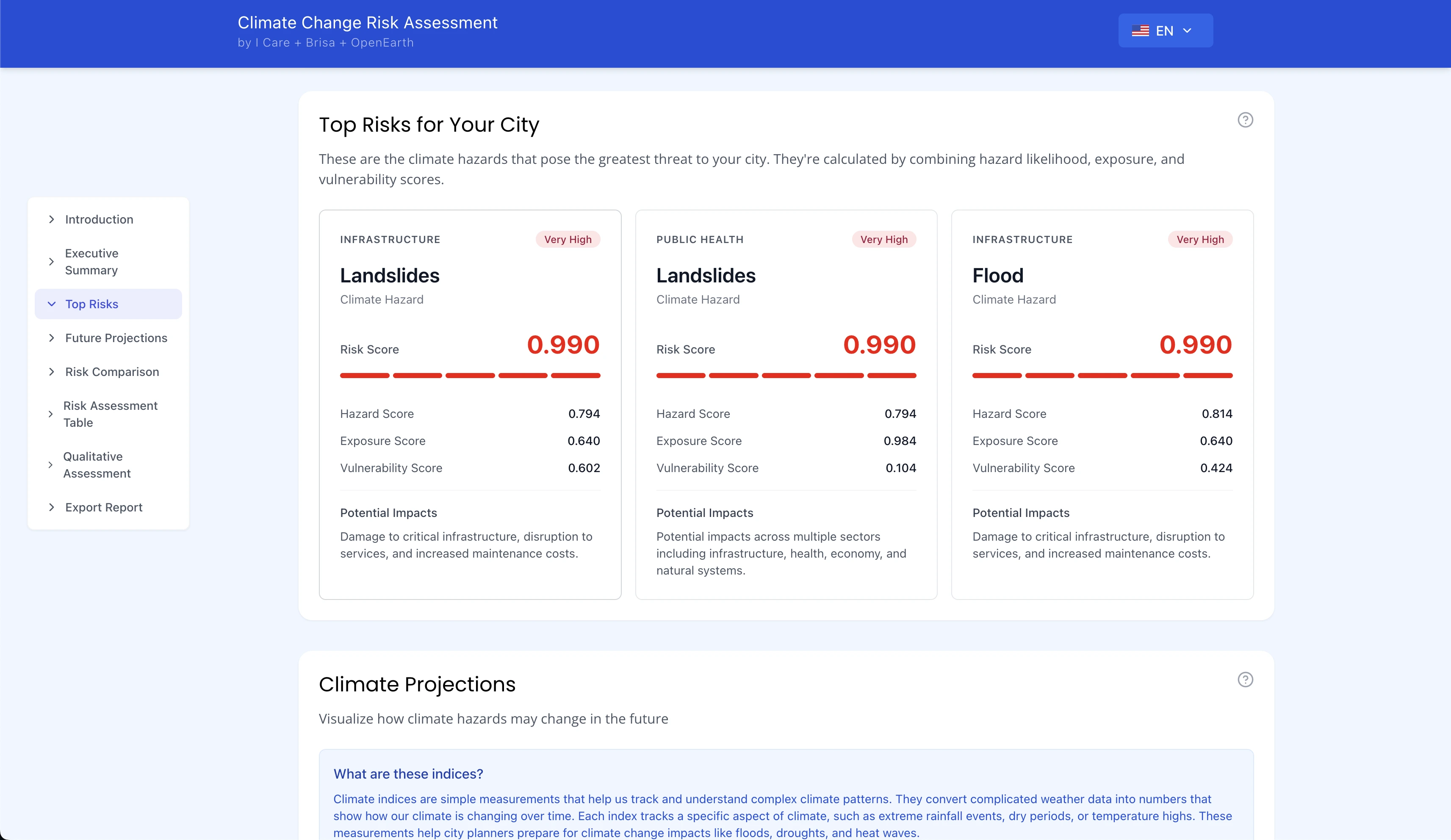Rapid Climate Risk Assessment: Better CCRAs for Brazilian Cities

Description
A web-based tool to help cities assess their exposure to climate hazards under different future scenarios, using public databases from Brazil.
The Context
Once a city has inventored their emissions, the next step is to know how vulnerable they are to climate change effects. Climate change risk assessments (CCRA) are required for adaptation planning and funding access, but cities often lack the expertise, time, or data to complete them. The result is either no assessment or generic ones that don't support local decisions, where clear insights are a huge priority.
The Problem
Risk assessments are perceived as expensive, technical, and too slow. Existing tools are built for scientists, not for planners. Cities don't have a way to visualize or compare risks over time, which difficults making an informed decision. Also, there are multiple methodologies scattered.
Our Take
We designed a simple tool that gives cities a first-pass risk profile, integrating public sources from Brazil and partnering with local data experts to develop a better and more effective methodology. Instead of hiding behind models, we exposed the logic and let cities adjust. We focused on usability, adaptability, and alignment with reporting frameworks.
The Process
I co-created a scoring model with our data team and translated it into a clean visual interface — including a radar chart, toggleable scenarios (present, optimistic, pessimistic), and a structured risk table. I led user research with data partners to validate terms and flow, and built the tool using Replit with data sourced from national and global datasets. I participated both as project coordinator, designer and coder (assisted with AI).
The Outcomes
- ✓Integrated open data for 5.570 cities and municipalities
- ✓Improved the experience from expert to user-friendly
- ✓Included a new approach which allowed integrating qualitative data as an input
- ✓Facilitated the creation of a new methodology for climate risk assessment